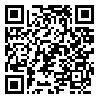شنبه 2 اسفند 1404
[Archive]
دوره 13، شماره 1 - ( زمستان 1403 )
جلد 13 شماره 1 صفحات 70-57 |
برگشت به فهرست نسخه ها
Download citation:
BibTeX | RIS | EndNote | Medlars | ProCite | Reference Manager | RefWorks
Send citation to:



BibTeX | RIS | EndNote | Medlars | ProCite | Reference Manager | RefWorks
Send citation to:
Shiri E, Pouretemad H, Behzadpoor S. The Effectiveness of Family-based Behavior Therapy on Behavioral Excesses of Children With Autism Via Telehealth. PCP 2025; 13 (1) :57-70
URL: http://jpcp.uswr.ac.ir/article-1-954-fa.html
URL: http://jpcp.uswr.ac.ir/article-1-954-fa.html
The Effectiveness of Family-based Behavior Therapy on Behavioral Excesses of Children With Autism Via Telehealth. Practice in Clinical Psychology. 1403; 13 (1) :57-70
چکیده: (3273 مشاهده)
Objective: Family-based interventions are considered evidence-based approaches to reduce behavioral excesses for autism spectrum disorders (ASD). Due to some barriers to the delivery of these interventions for families living in underserved areas, innovative models, such as telehealth, should be investigated. Telehealth can also be an effective method to deliver interventions to immigrant families. Therefore, this study aims to investigate the effectiveness and feasibility of family-based management of behavioral excesses of autism program (FMBEAP) via telehealth in Iranian families.
Methods: Fourteen parents of children with ASD (mean age of 38.14±9.42 months) participated in an intervention with pre-, post, and -follow-up design. These families received a 10-week group intervention via telehealth. A range of outcome measures was collected on three occasions (pre and post-intervention and one-month follow-up) to evaluate the feasibility, acceptability, and efficacy of FMBEAP via telehealth.
Results: The results indicated that high and low-order behavioral excesses were significantly decreased in the post-test and follow-up stages. A total of 12 out of 14 children achieved recovery or high recovery at the end of the intervention. Also, parents reported a significant improvement in parenting self-efficacy. The program was acceptable to parents, evidenced by an 82.15 satisfaction rate and 86% attainment of session goals.
Conclusion: These results suggest that telehealth can be used to implement FMBEAP with acceptable fidelity and to attain substantial reductions in behavioral excesses in children with ASD.
Methods: Fourteen parents of children with ASD (mean age of 38.14±9.42 months) participated in an intervention with pre-, post, and -follow-up design. These families received a 10-week group intervention via telehealth. A range of outcome measures was collected on three occasions (pre and post-intervention and one-month follow-up) to evaluate the feasibility, acceptability, and efficacy of FMBEAP via telehealth.
Results: The results indicated that high and low-order behavioral excesses were significantly decreased in the post-test and follow-up stages. A total of 12 out of 14 children achieved recovery or high recovery at the end of the intervention. Also, parents reported a significant improvement in parenting self-efficacy. The program was acceptable to parents, evidenced by an 82.15 satisfaction rate and 86% attainment of session goals.
Conclusion: These results suggest that telehealth can be used to implement FMBEAP with acceptable fidelity and to attain substantial reductions in behavioral excesses in children with ASD.
نوع مطالعه: پژوهشي |
موضوع مقاله:
خانواده و گروه درماني
دریافت: 1403/6/20 | پذیرش: 1403/9/7 | انتشار: 1403/10/12
دریافت: 1403/6/20 | پذیرش: 1403/9/7 | انتشار: 1403/10/12
| بازنشر اطلاعات | |
 |
این مقاله تحت شرایط Creative Commons Attribution-NonCommercial 4.0 International License قابل بازنشر است. |



